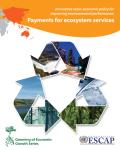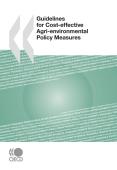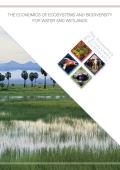
For an economy to “grow green”, investments must be made in natural capital. Natural capital provides both “direct” ecosystem services such as the provision of food and raw materials, and “indirect” ecosystem services such as carbon sequestration, watershed protection, aquifer recharge and biodiversity habitat provision. Ecosystem services support human economies and societies. They are usually irreplaceable, or can only be substituted for at great cost. The savings achieved by protecting natural capital can provide convincing economic, in addition to the well-known environmental arguments, for sound environmental management. Incentives for sustainable management of ecosystems through payments for ecosystem services (PES) can boost action on sound ecosystem management.

Korea’s greenhouse gas emissions almost doubled between 1990 and 2005, the highest growth rate in the OECD area. Korea recently set a target of reducing emissions by 30% by 2020 relative to a “business as usual” baseline, implying a 4% cut from the 2005 level. Achieving this objective in a cost-effective manner requires moving from a strategy based on voluntary commitments by firms to market-based instruments. The priority is to establish a comprehensive cap-and-trade scheme, supplemented, if necessary, by carbon taxes in areas not covered by trading. Achieving a significant cut in emissions requires a shift from energy-intensive industries to low-carbon ones. Korea is strongly committed to promoting green growth through its Five-Year Plan, which envisages spending 2% of GDP per year through 2013. One challenge is to ensure that these expenditures are efficiently targeted so as to develop green technologies, while avoiding the risks inherent in industrial policy.

This TEEB for Water and Wetlands report underlines the fundamental importance of wetlands in the water cycle and in addressing water objectives reflected in the Rio+20 agreement, the Millennium Development Goals and forthcoming post 2015 Sustainable Development Goals. The report presents insights on both critical water-related ecosystem services and also on the wider ecosystem services from wetlands, in order to encourage additional policy momentum, business commitment, and investment in the conservation, restoration, and wise use of wetlands.
TEEB Water and Wetlands aims to show how recognizing, demonstrating, and capturing the values of ecosystem services related to water and wetlands can lead to better informed, more efficient, and fairer decision making. Appreciating the values of wetlands to both society and the economy can help inform and facilitate political commitment to policy solutions.
The Durban conference decided to establish a new market based mechanism that is to cover a broad segment of a country’s economy. The question is, however, which developing countries would actually be able to implement such a mechanism. The introduction of the EU emission trading system highlighted the many challenges that even advanced developed countries face when establishing a carbon market. This paper therefore, aims to explore the essential prerequisites for the implementation of new market mechanisms (NMM). In addition to a theoretical discussion it considers the cases of China and Mexico.
This summary was prepared by Eldis.
